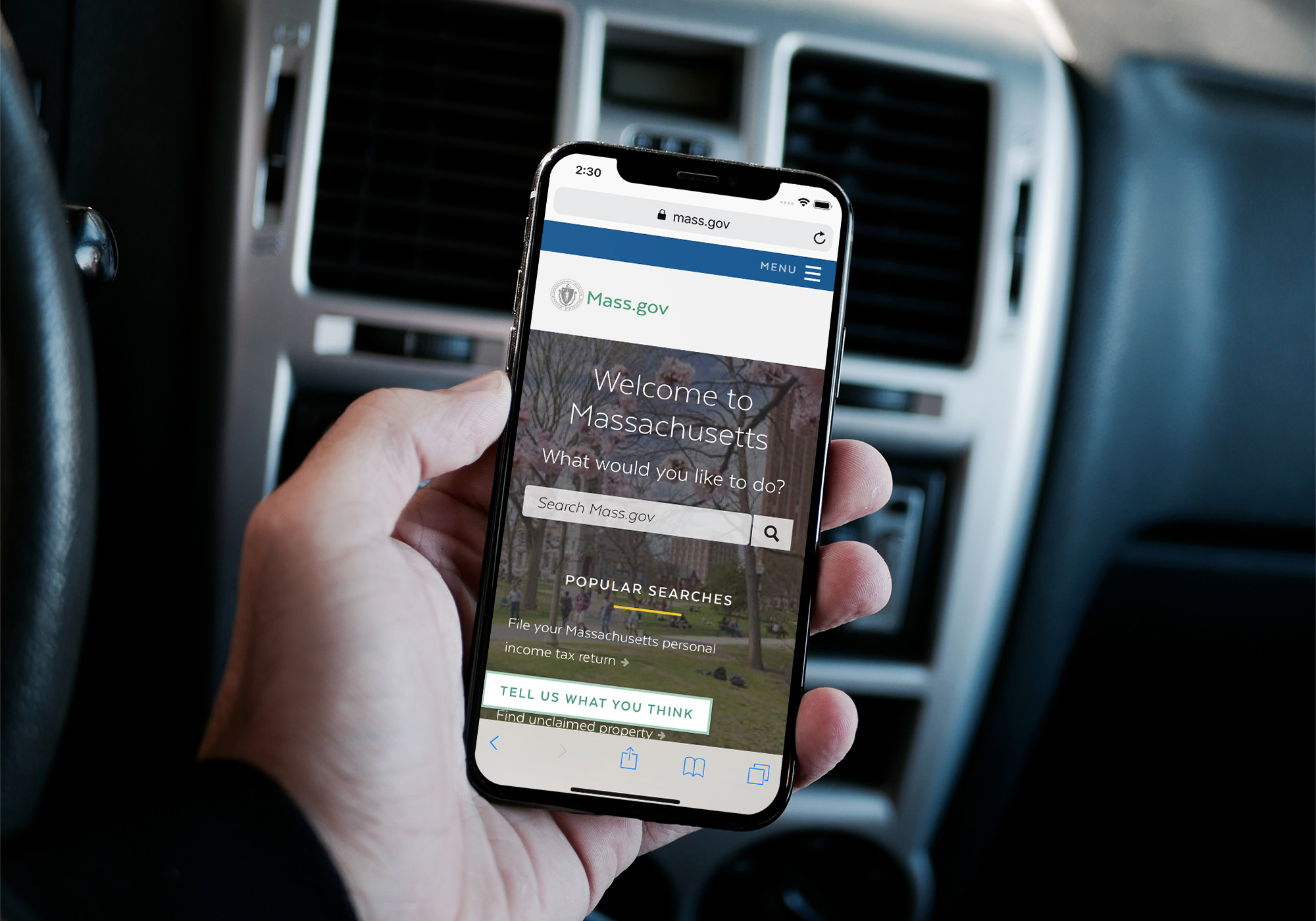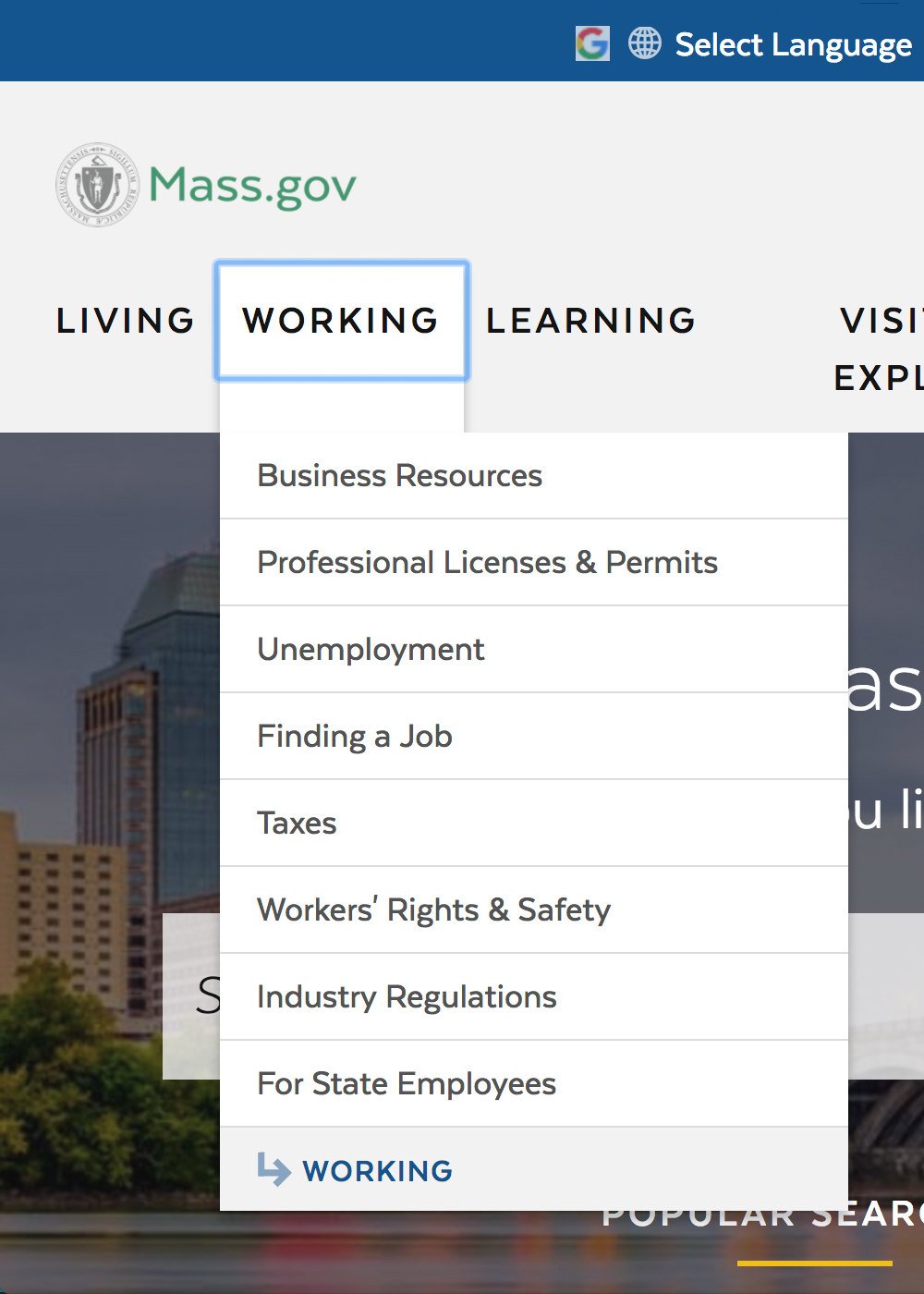
The Commonwealth of Massachusetts
Improving the State of the Web
Providing online access to state services
The Commonwealth of Massachusetts
The Massachusetts Executive Office of Technology Services and Security (EOTSS) provides responsive digital and security services that enable taxpayers, motorists, businesses, visitors, families, and other citizens to do business with the Commonwealth in a way that makes every interaction with government easier, faster, and more secure. EOTSS also oversees and manages the enterprise technology and digital infrastructure and services for over 125 state agencies and over 43,000 state employees.
Home to more than 6.8 million people, the Commonwealth of Massachusetts is the most populous state in New England.
Like everywhere in the U.S., those 6.8 million people rely on their state government to provide them with services and support, which includes providing the information they need to perform vital tasks required by law. Whether those tasks include renewing a driver’s license, applying for food assistance, or registering a new business, constituents need to be able to find relevant information efficiently. Mass.gov is the flagship website for the Commonwealth, and its main goal is to provide online support to its constituents.
The challenge facing the Commonwealth was two-fold: one part a challenge for the constituents of Massachusetts, and one part a technology problem for the government dedicated to serving those people. The Commonwealth’s website reflected its internal organizational structure instead of organizing content in a way that made sense to its users. The old site was also on an antiquated, proprietary content management system that had not been able to address changing needs over time and was about to be decommissioned.
In 2016, Palantir was engaged by the Commonwealth to be part of a team tasked with developing a new framework for Mass.gov using the Drupal content management platform. This team that included designers and strategists from other vendors, data scientists, content authors, and in-house developers. Highlights of Palantir's work on the project included:
- Migration to flexible, open-source platform
- Restructure of content for easy search
- User-centric design based on common tasks
Using data to identify constituents' top needs

